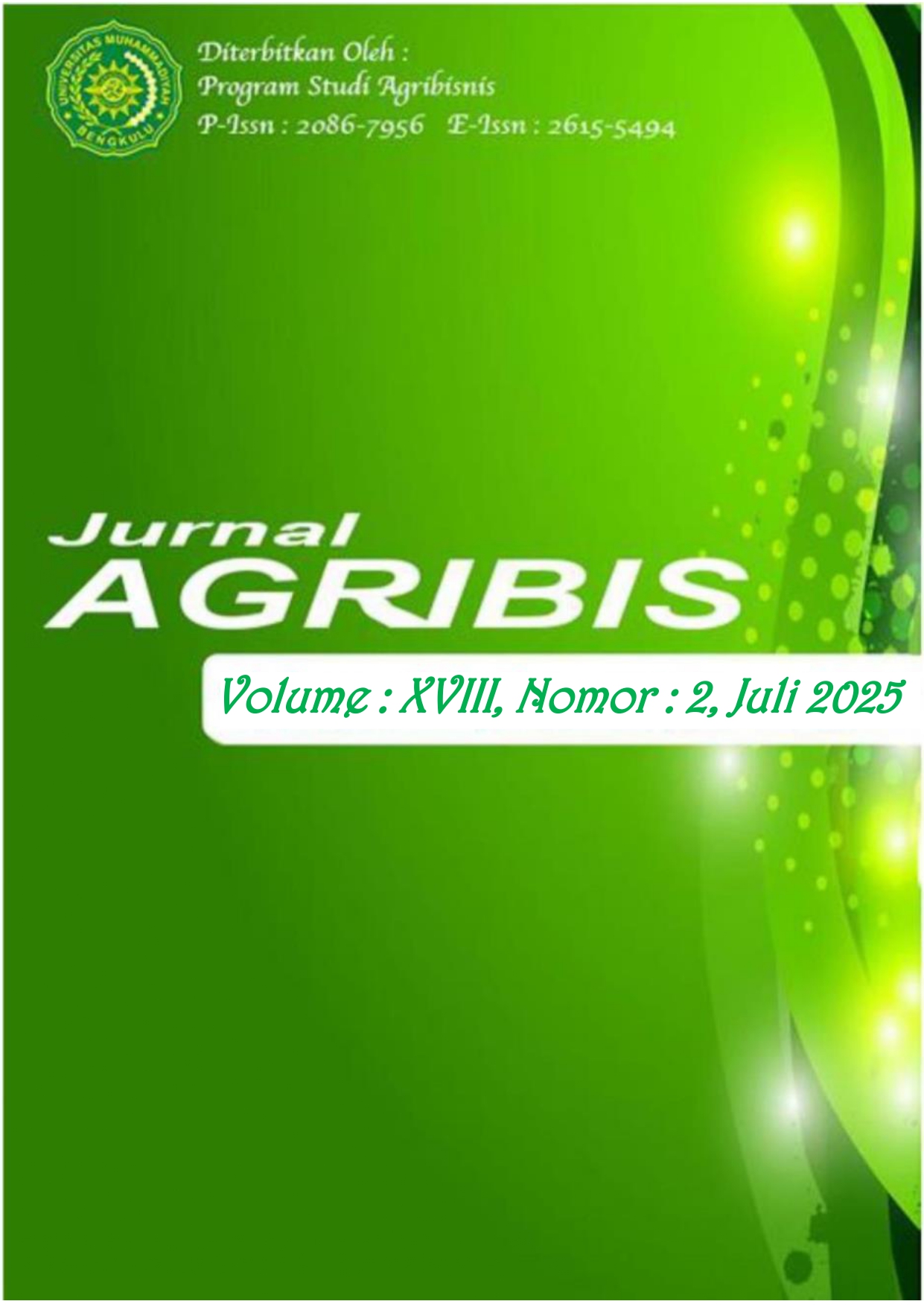DAMPAK PENYULUHAN PERTANIAN DALAM PENYALURAN ALSINTAN DAN SAPRODI DI KELOMPOK TANI JAMBUAN JAYA, DESA ANTIROGO, KECAMATAN SUMBERSARI, KABUPATEN JEMBER
DOI:
https://doi.org/10.36085/agribis.v18i2.8386Abstrak
This study aims to to explore the role of extension workers in assisting farmer groups in obtaining access to agricultural machinery and agricultural inputs that meet farmers' needs, and to observe the impact of aid distribution on work effectiveness and agricultural production results. at the Jambuan Jaya Farmer Group, located in Antirogo Village, Sumbersari Subdistrict, Jember Regency. The research employs a qualitative approach with descriptive methods. Data were collected through in-depth interviews, direct observation, and documentation. Informants were selected using purposive and snowball sampling techniques, involving 10 individuals including group leaders, extension agents, and farmer group members. The findings indicate that agricultural extension workers play seven key roles in the distribution process: as motivators, communicators, facilitators, organizers, educators, consultants, and catalysts. The distribution of support is carried out in stages based on land area ownership and is complemented by training on equipment use. Although the distribution is not yet evenly allocated, the implementation of assistance and technical guidance is considered effective. The impact of the assistance is reflected in increased productivity, work efficiency, and farmers’ knowledge and skills in using agricultural technologies. Additionally, the two-way communication between farmers and extension agents strengthens mutual trust and encourages active participation of farmers in decision-making processes. The study concludes that the active role of extension workers is crucial in optimizing the distribution and utilization of agricultural assistance and in enhancing the institutional performance of farmer groups comprehensively.







